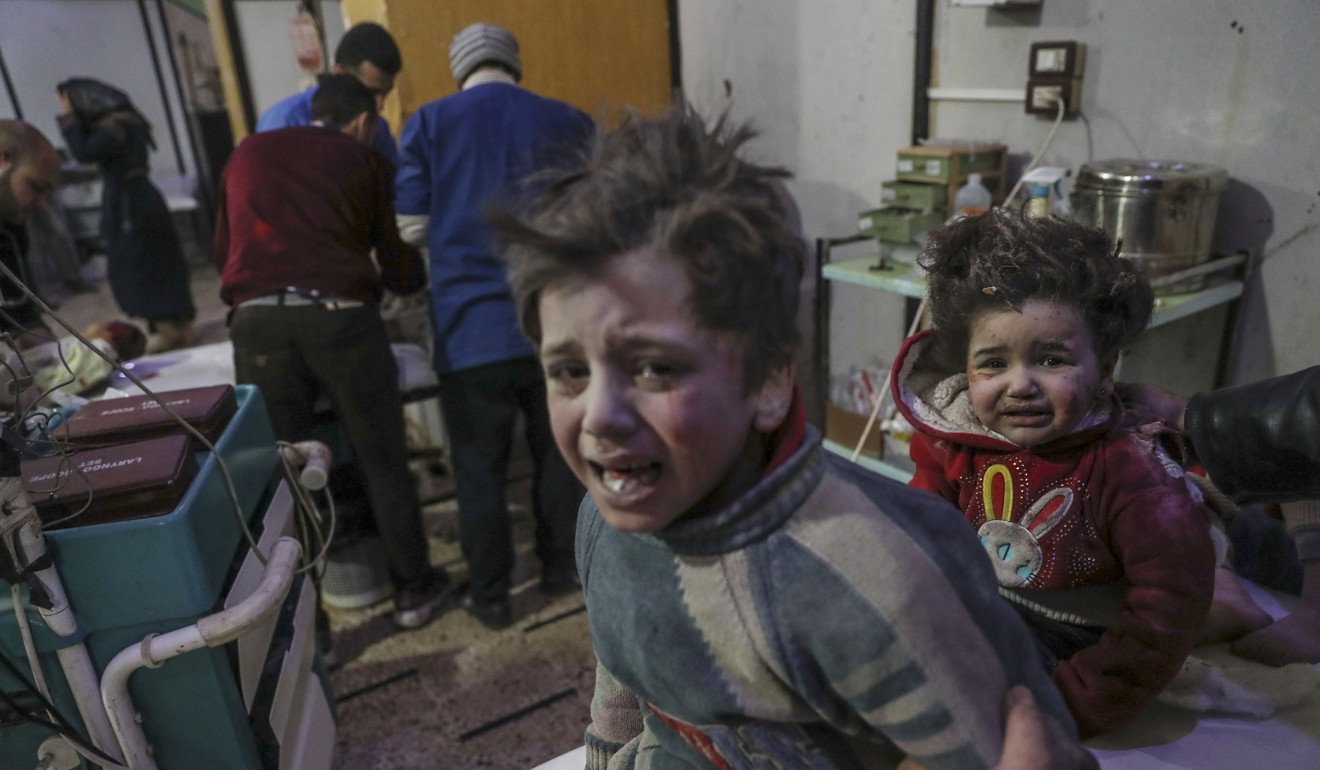
‘End this senseless suffering’: UN slams Syrian regime bombings as death toll nears 200, including 57 children
Government attack on rebel-held neighbourhood is expected to herald an assault by ground forces
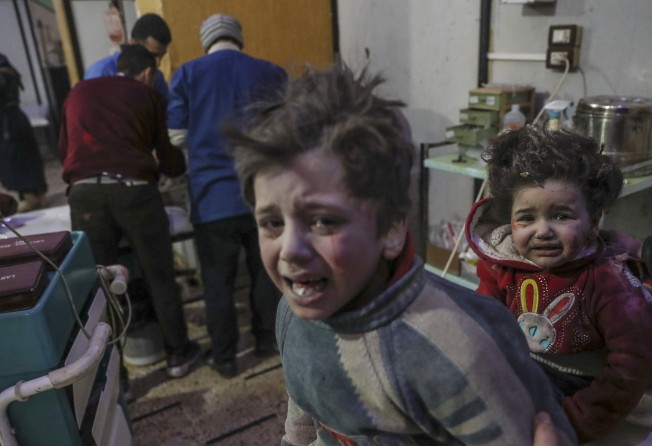
Air strikes hit Syria’s Eastern Ghouta for a third straight day on Tuesday, bringing the civilian death toll to nearly 200 as the UN warned the situation in the rebel enclave was spinning “out of control”.
Air strikes and rocket and artillery fire have battered the rebel-held enclave since Sunday in apparent preparation for a government ground assault on the besieged region.
At least 194 civilians have been killed, among them 57 children, the Syrian Observatory for Human Rights said.
On Monday alone, 127 civilians, including 39 children, were killed in the bombardment – the single bloodiest day for Eastern Ghouta in four years.
Fresh air strikes on Tuesday morning killed at least 50 civilians, including 13 children, the Britain-based war monitor said.
Held by rebels since 2012, Eastern Ghouta is the last opposition pocket around Damascus and President Bashar al-Assad is keen to retake it with an apparently imminent ground assault.

The UN’s regional humanitarian coordinator for Syria Panos Moumtzis has warned that the targeting of civilians in the enclave “must stop now”.
Do those inflicting the suffering still have words to justify their barbaric acts?
“The humanitarian situation of civilians in East Ghouta is spiralling out of control. It’s imperative to end this senseless human suffering now,” Moumtzis said on Monday.
The UN has repeatedly called for a month-long ceasefire across Syria’s front lines, from Eastern Ghouta to the Kurdish enclave of Afrin in the northwest, which Turkey threatened on Tuesday to lay siege to in the coming days.
“February 19 was the one of the worst days that we’ve ever had in the history of this crisis,” said an exhausted doctor in a hospital in Eastern Ghouta.
Identifying himself as Abu al-Yasar, he described treating a one-year-old brought into the Arbin hospital with blue skin and a faint pulse, rescued from under the rubble.
“I opened his mouth to put in a breathing tube and I found it packed with dirt,” Abu al-Yaar said.
He pulled out the dirt as fast as possible, put in the breathing tube and managed to save the baby’s life.
“This is just one story from among hundreds of wounded.”
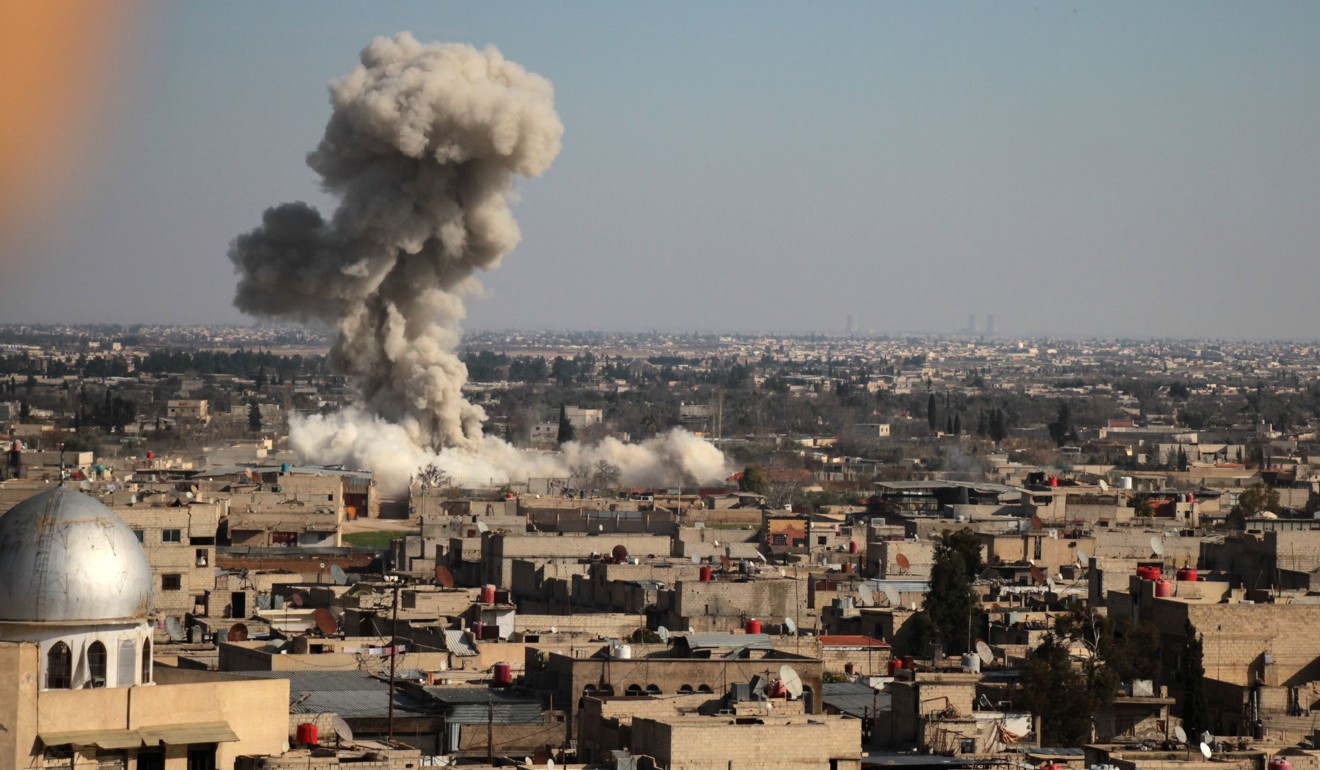
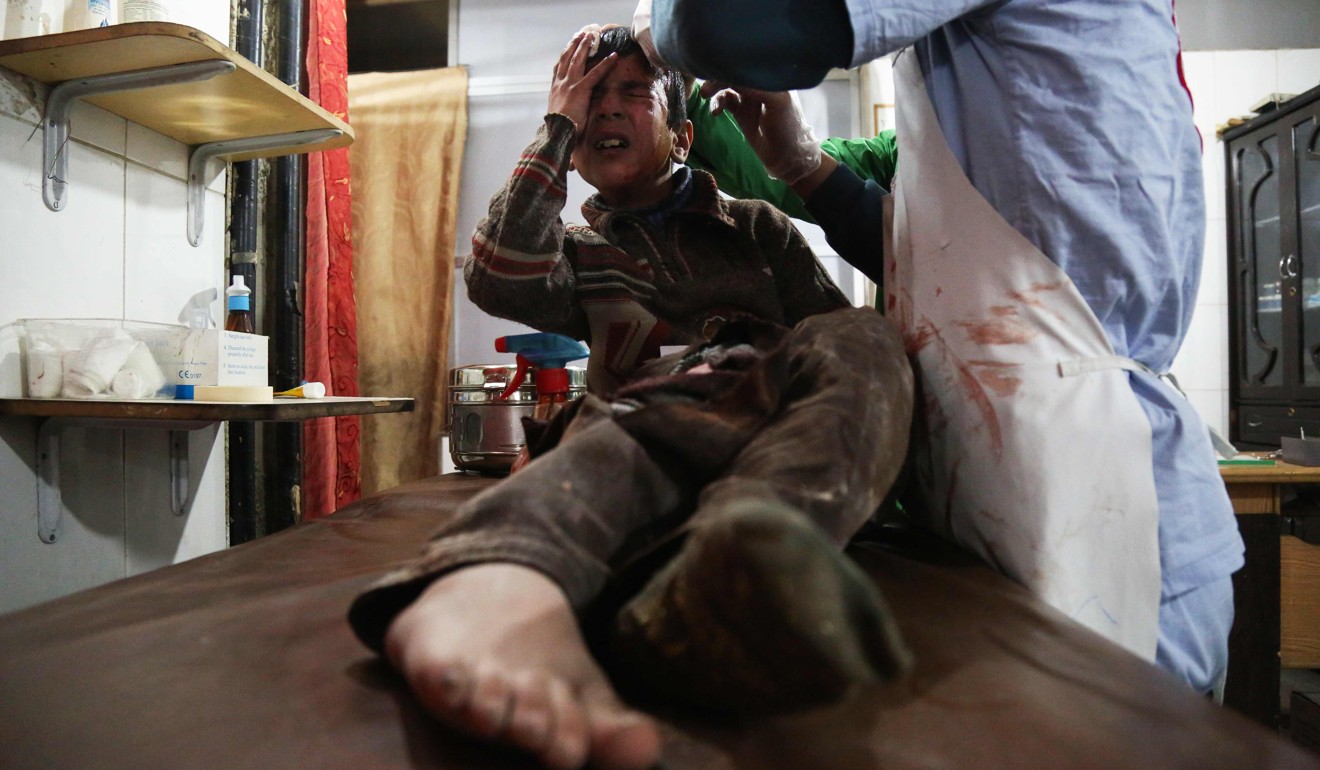
The bloodshed prompted the UN children’s agency Unicef to issue a largely blank statement on Tuesday to express its anger.
“We no longer have the words to describe children’s suffering and our outrage,” the agency said in a brief postscript beneath the empty space on the page.
“Do those inflicting the suffering still have words to justify their barbaric acts?”
More than 400,000 people live in Eastern Ghouta, which has been surrounded by government troops since 2013. Food, medicine, and other basic necessities are nearly impossible to obtain.
Eastern Ghouta is mostly held by two hardline rebel groups – Jaish al-Islam and Faylaq al-Rahman – though jihadists have a smaller foothold.
The factions often fire rockets and mortar rounds into residential neighbourhoods of east Damascus.
On Tuesday, at least four people were killed and 15 wounded by rebel fire on the capital, state television reported.
Al-Watan newspaper, which is close to the government, said on Tuesday that the bombing campaign “comes ahead of a vast operation on Ghouta, which may start on the ground at any moment”.
Both Al-Watan and the Observatory had earlier reported ongoing negotiations for the withdrawal of jihadists from the enclave.
But the escalating bombardment suggests the regime is likely to opt for a ground assault.
It already waged a ferocious five-day air assault on Eastern Ghouta earlier this month that left around 250 civilians dead and hundreds wounded.
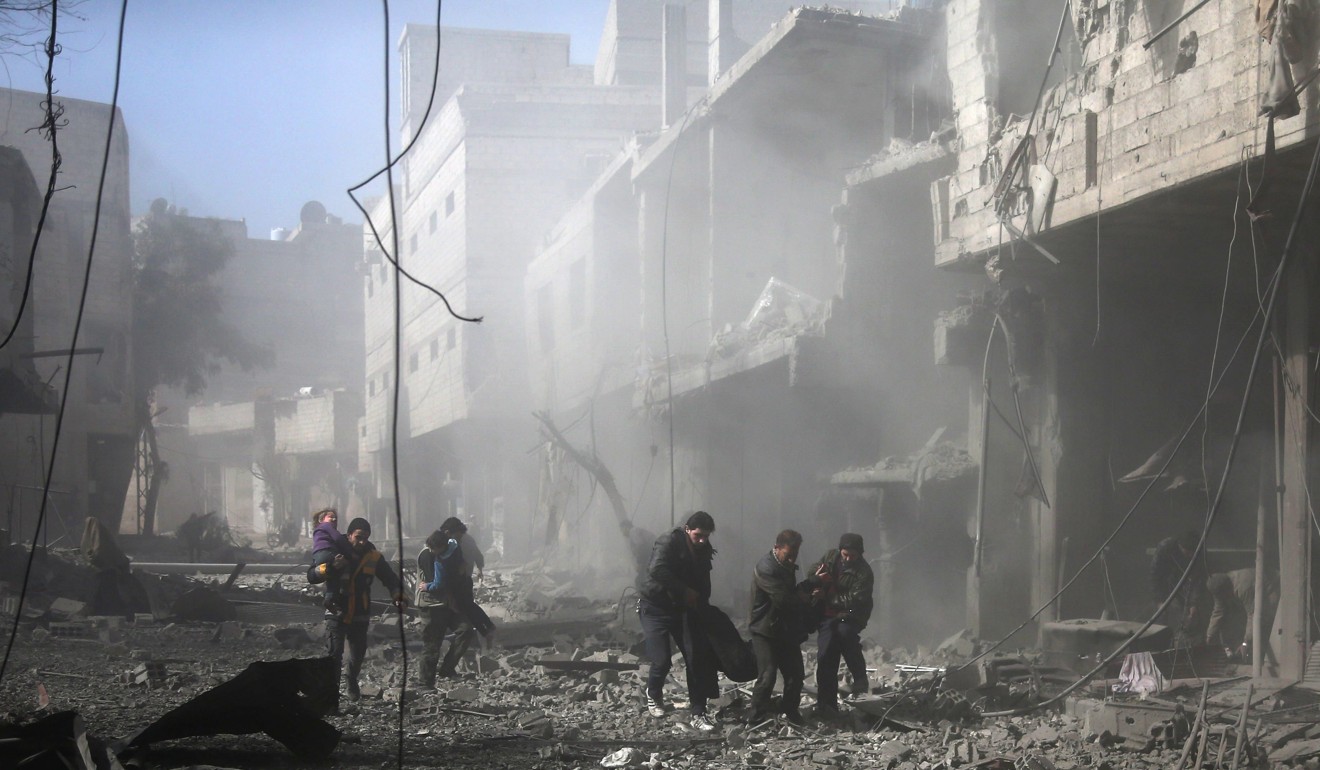
More than 340,000 people have been killed since the civil war erupted in 2011 when protests against Assad’s government were brutally crushed.
An array of rebels, some of them jihadist, have since carved out zones of control as have the Kurdish minority, and the government and its allies.
Turkey has been waging an air and ground offensive against the Kurdish-controlled enclave of Afrin just across the border for the past month.
President Recep Tayyip Erdogan on Tuesday defended the operation’s slow progress, saying it was to avoid putting the lives of both Turkish troops and civilians needlessly at risk.
He told parliament Turkish troops and their Syrian rebel allies would lay siege to the town of Afrin “in the coming days”.
Ankara says the Kurdish People’s Protection Units (YPG), which controls Afrin, is a “terrorist” offshoot of the Kurdistan Workers’ Party (PKK), which has waged an insurgency in southeastern Turkey since 1984.